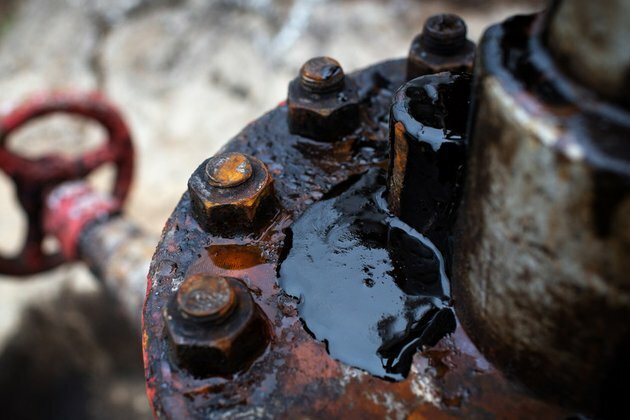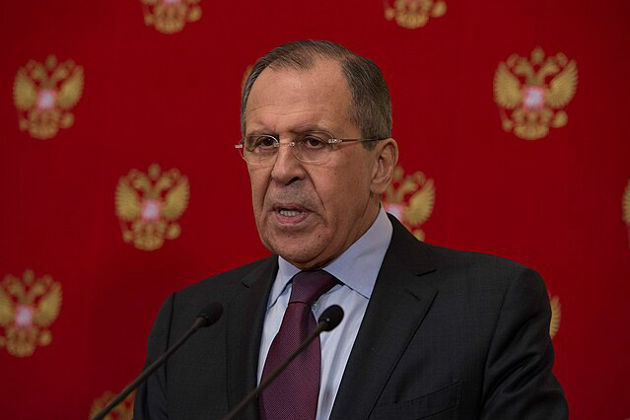Can the West survive without Russian oil
RT.com
15 May 2022, 13:45 GMT+10

Countries pushing for an embargo may not find alternative crude suppliers
The EU and UK recently announced plans to ban all purchases of Russian oil by the end of the year in response to Russia's military operation in Ukraine. Washington has already declared a complete ban on Russian oil. Moscow, meanwhile, has warned that cutting off its crude would lead to "catastrophic consequences for the global market," a notion endorsed by the head of the Organization of the Petroleum Exporting Countries (OPEC), Mohammed Barkindo, who recently warned EU officials that it would be impossible to replace the volumes lost if Russian oil were banned. Russia is the world's third biggest oil producer and second biggest exporter. Amid global worries of a looming energy crisis, Western nations are looking for alternative suppliers.
Norway is Europe's second largest oil supplier after Russia, providing 8% of the EU's oil imports, versus Russia's 27% as of 2021. It pumps around 4 million barrels of oil equivalent per day and is forecast to increase its output by 9% by 2024. The country announced in March that it would offer new licenses to drill for oil and gas, including in previously unexplored areas in the Arctic. However, on a broader scale, Norway's production represents a mere 2% of total global crude oil demand, meaning that it is a small player. Meanwhile, new drilling sites take time to explore and develop - time that Europe does not have.
The former Soviet republic boasts the largest proven oil reserves in the Caspian Sea region. Most of its crude oil exports go to Europe, making up some 6% of its oil imports. However, Kazakhstan relies on Russia to export most of its crude through a pipeline from its western oil fields through southern Russia to Russia's Black Sea oil terminal at Novorossiysk. This raises the question of whether Kazakh oil would be allowed to come to Europe if it is shipped via Russia.
The country is also among Europe's oil suppliers, covering some 6% of the continent's oil needs. It used to supply oil to the US but was replaced by Canada when the latter increased its oil sands production. Nigeria has proven reserves equal to 237.3 times its annual consumption. However, the country struggles due to the lack of functional refineries, while refined petroleum makes up the largest part of Nigeria's import bill (around 17%). This may mean the country would hardly be able to focus on boosting its crude exports while the tanks at home sit empty.
Middle Eastern nations hold nearly half of the world's proven oil reserves and much of its spare production capacity. However, underinvestment in infrastructure, political conflicts, and, in the case of Iran, sanctions, may interfere with the region's ability to come to the rescue when the West loses Russian oil. Saudi Arabia and the United Arab Emirates, for instance, constitute most of OPEC's spare production capacity. But Saudi Arabia has repeatedly brushed off US pleas to boost output beyond the OPEC-agreed post-Covid-19 increase. Both countries are also unlikely to divert oil shipments from Asia to Europe for fear of losing the region's main buyer, China, analysts say. Iraq and Libya could boost production, experts say, but domestic political troubles make that unlikely. This leaves Iran, which, although fully equipped to raise crude output, is still under US sanctions and efforts to revive the 2015 nuclear agreement with global powers continue to bear no fruit.
The world's 11th largest oil exporter, Brazil was recently asked by the US to boost its oil output. This was prompted by soaring gasoline prices in the US following its ban on Russian oil. Even though oil from Russia accounted for just 8% of US crude imports, uncertainty over supplies had sent domestic prices surging. However, Brazil refused Washington's request. The country's state-run oil company, Petrobras, said that output levels were determined by business strategy rather than diplomatic considerations and also that a significant short-term production boost would not be logistically possible.
Washington also approached Venezuela, which boasts the globe's largest proven oil reserves, pledging to ease some of the sanctions on the country in exchange for a boost in oil exports to the US. However, Washington was later reported to have backtracked on the offer, despite Caracas saying it could boost output by at least 400,000 barrels per day.
The US is the world's top producer of crude oil, with output of about 11.6 million barrels per day as of December 2021. However, the country is also the world's largest consumer of oil, using about 20% of the world's total, which makes it a net importer. The US could potentially boost production and sell more of its crude to Europe, but American oil is very light and is unfit for producing the diesel and gasoline needed by markets, both in America and Europe.
Canada is the world's fifth-largest oil producer and has the world's third-largest proven oil reserves. However, the country has limited pipeline capacity and export infrastructure, and pumps nearly all of its oil to the North American market at low prices. In March, Canada's natural resources minister pledged to boost output to help solve the energy crisis in Europe, but there are concerns about how much extra oil the country can pump, considering that production in Western Canada was already near record levels last winter. Canada can reportedly boost its oil output by only an estimated 200,000 barrels per day. This would only help the US make up for some of the shortfall that emerged from losing the 500,000 barrels of Russian petroleum - and there is no clear time frame for when Canada could deliver these barrels.
For more stories on economy & finance visit RT's business section
(RT.com)
 Share
Share
 Tweet
Tweet
 Share
Share
 Flip
Flip
 Email
Email
Watch latest videos
Subscribe and Follow
Get a daily dose of Houston Mirror news through our daily email, its complimentary and keeps you fully up to date with world and business news as well.
News RELEASES
Publish news of your business, community or sports group, personnel appointments, major event and more by submitting a news release to Houston Mirror.
More InformationBusiness
SectionUS debt limit raised, but spending bill fuels fiscal concerns
NEW YORK CITY, New York: With just weeks to spare before a potential government default, U.S. lawmakers passed a sweeping tax and spending...
Shein hit with 40 million euro fine in France over deceptive discounts
PARIS, France: Fast-fashion giant Shein has been fined 40 million euros by France's antitrust authority over deceptive discount practices...
Meta hires SSI CEO Gross as AI race intensifies among tech giants
PALO ALTO/TEL AVIV: The battle for top AI talent has claimed another high-profile casualty—this time at Safe Superintelligence (SSI),...
Engine defect prompts Nissan to recall over 443,000 vehicles
FRANKLIN, Tennessee: Hundreds of thousands of Nissan and Infiniti vehicles are being recalled across the United States due to a potential...
Microsoft trims jobs to manage soaring AI infrastructure costs
REDMOND, Washington: Microsoft is the latest tech giant to announce significant job cuts, as the financial strain of building next-generation...
Stocks worldwide struggle to make ground Friday with Wall Street closed
LONDON UK - U.S. stock markets were closed on Friday for Independence Day. Global Forex Markets Wrap Up Friday with Greeback Comeback...
International
SectionMoscow removes Taliban from banned list, grants official status
MOSCOW, Russia: This week, Russia became the first country to officially recognize the Taliban as the government of Afghanistan since...
Netanyahu vows 'No Hamas' in postwar Gaza amid peace talks
CAIRO, Egypt: This week, both Hamas and Israel shared their views ahead of expected peace talks about a new U.S.-backed ceasefire plan....
US sends message by publicizing visa ban on UK punk-rap band
WASHINGTON, D.C.: The Trump administration has made public a visa decision that would usually be kept private. It did this to send...
Tragedy in Spain: Diogo Jota and his brother die in car accident
MADRID, Spain: Liverpool footballer Diogo Jota and his younger brother, André Silva, have died in a car accident in Spain. Spanish...
Early heatwave grips Europe, leaving 8 dead and nations on alert
LONDON, U.K.: An unrelenting heatwave sweeping across Europe has pushed early summer temperatures to historic highs, triggering deadly...
U.S. military, China, Russia in Space race
President Donald Trump's plans to build a space-based Golden Dome missile defense shield have drawn immediate criticism from China,...













